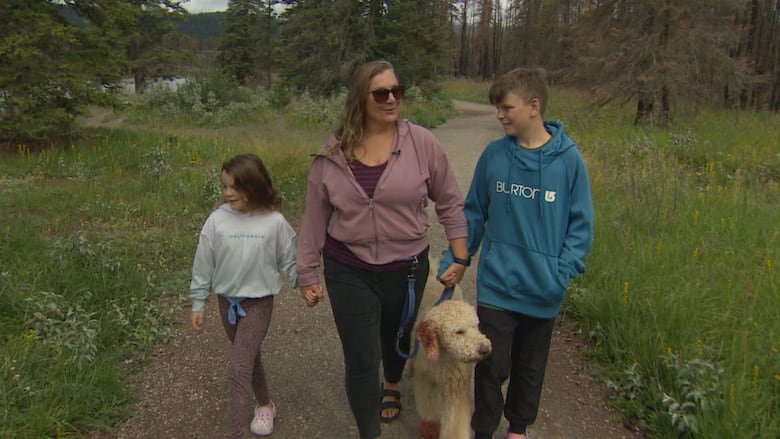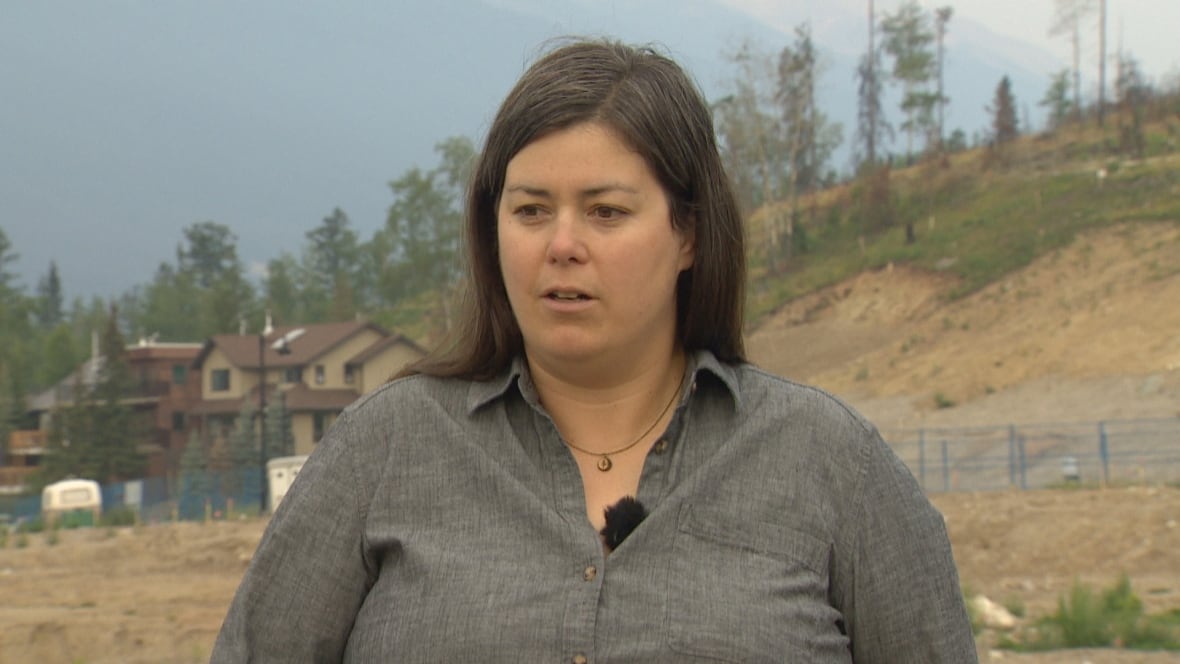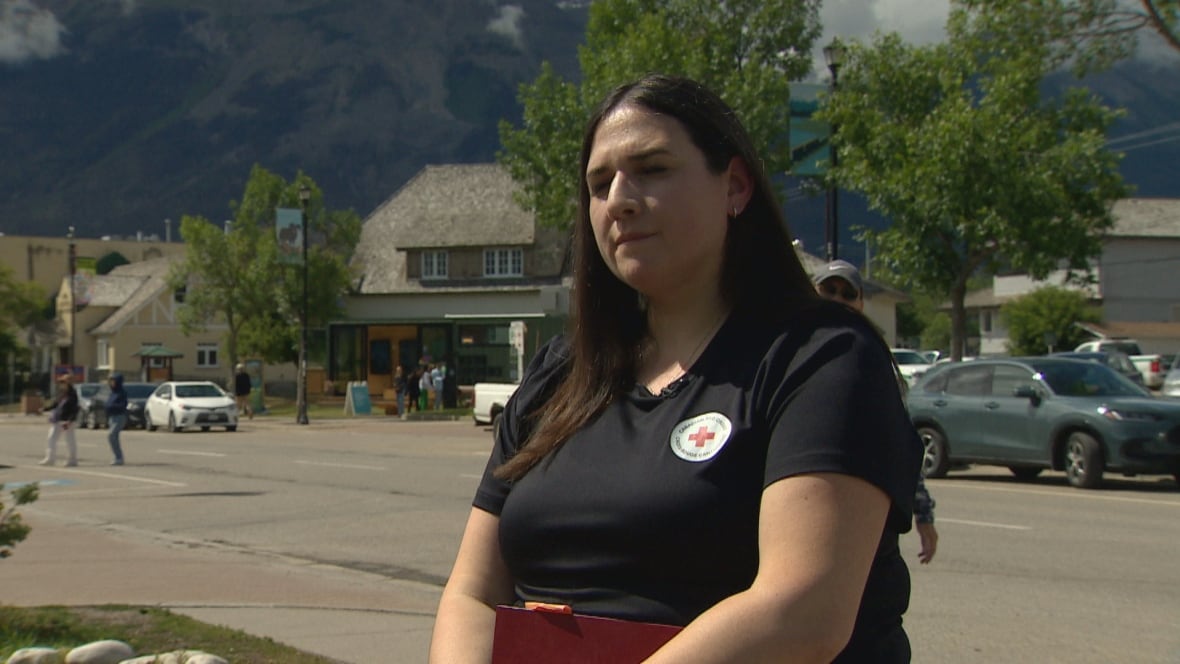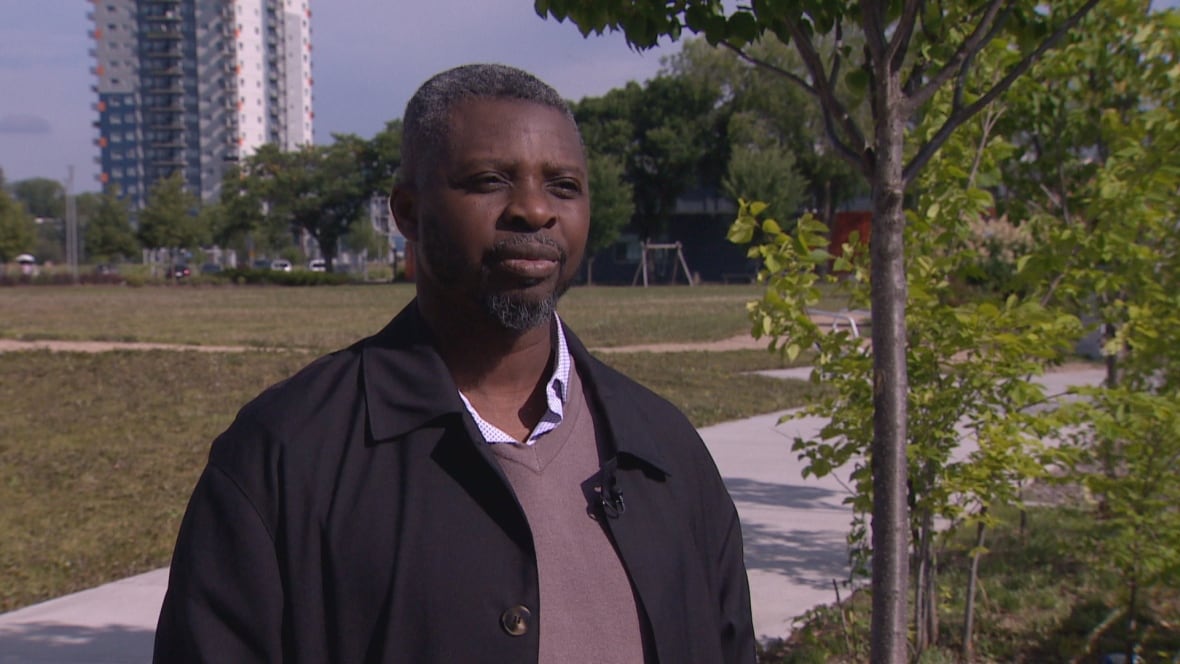Jasperites work through mental health struggles amid anniversary of destructive fire
Supports in place for first responders and residents

The natural beauty of the Rocky Mountains has been like medicine for Melody Gaboury Scott.
The Jasper woman said being outside in nature has helped her process last year's devastating wildfire.
Mental health is top of mind for many residents, officials and organizations, as the community marks the one-year anniversary of a wildfire that destroyed roughly one-third of the townsite's buildings and forced the evacuation of approximately 25,000 residents and tourists.
"The first time we came back, I was vibrating inside, shaking," she said.
"It was terrible. That's all I could say, 'This is terrible.'"

Gaboury Scott and her family lost their home. While they are now rebuilding, the experience of evacuating and returning to rubble has taken a toll.
"The fire affected our mental health and our physical health too, because when your mental health suffers, you're losing sleep," she said.
Supports available
Christine Nadon, the Municipality of Jasper's incident commander, lost her house alongside several other firefighters and first responders.
"You look at the hardship that losing 30 per cent of structures represented and still represents today. As you can see, it's super hard. It's going to take years for the community to recover," she said.

Nadon said her priority has been ensuring people's mental health is being taken care of.
"We have our very own fire department psychologist now. Our department is working with a psychologist for follow-ups and assessments and making sure that we give our members everything we possibly can," Nadon said.
"When you go through something like this, it can be quite isolating for people who don't really understand what those guys went through that night."
Residents who were forced to flee their homes are also getting support.
Since late September, the Canadian Red Cross has been paying for therapy for residents and that financial assistance will be there as long as people need it, said vice-president of recovery Emily Pietropaolo.
"It's really the right thing to do and people need that support at the end of day," she said.
"That could be counselling. That could be a traditional healer. That could be a knowledge holder. That could be whatever it looks like for them."

Pietropaolo said there is typically a bump in demand as time passes.
"The challenge is a lot of people probably feel like they should be further along then maybe they are at the one-year mark. And so we anticipate people needing more of that support," she said.
"Not everyone wants it and that's okay, but the offer is always there," she said.
It's understandable that some Jasperites may be struggling, according to Olakunle Akinyode, a registered psychologist.
"It's hard to still be in the community when you see it totally destroyed and there's reminders daily of the destruction and your life has shifted. I think it'd be almost impossible not to have some residual effect for a long period, especially while it's still rebuilding," he said.

Akinyode said he has several clients who were Jasper evacuees and said many residents may be re-evaluating their lives after the natural disaster.
"They're asking kind of more broad existential questions as well as kind of functional questions. 'How am I going to continue to exist in this area?'… But then some people ask, 'Is this where I want to be long term? Do I want to shift parts of my life?'" He said.
Akinyode said there are a few key things that residents can do to help them on their recovery journey.
"Focus on what you can do in the now. You look at those goals, those short-term goals, and you put your energies there because really, that's what you have control over," he said.
He also suggests finding things that normalize your life to remind you of some stability.
Feeling gratitude
One year after the wildfire, Gaboury Scott said she has been trying different kinds of therapies to help her move forward.
She is also putting emphasis on bike rides, walks, exercise and being with her community as ways to help her heal.
"[I'm] focusing on being grateful for what we have and grateful to all the people that have supported us, not just to my family personally, but my business and my community," she said.


